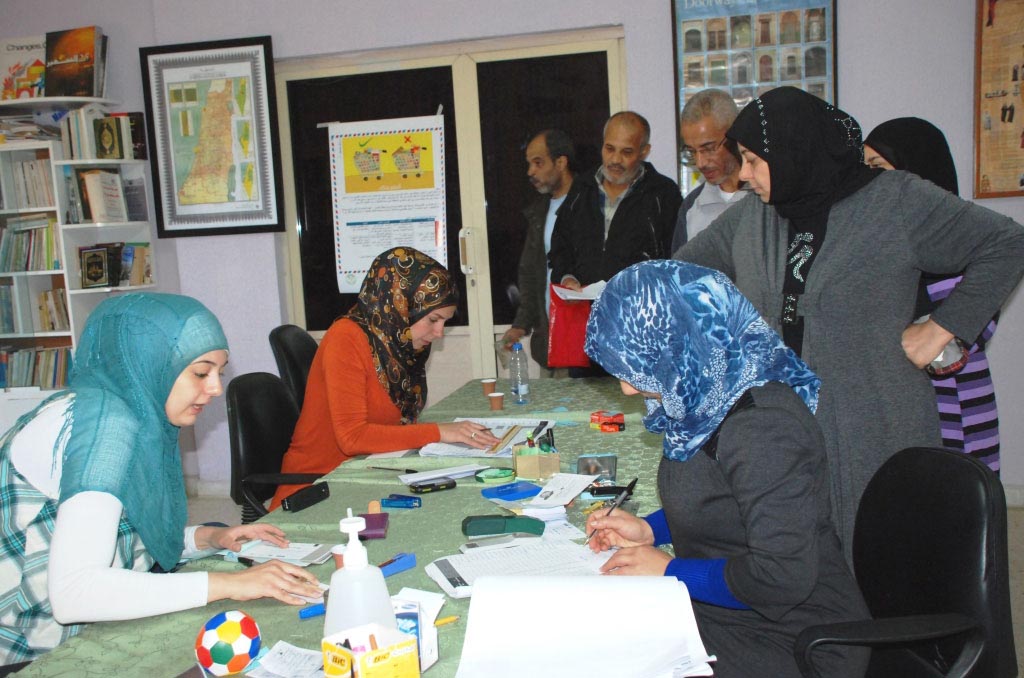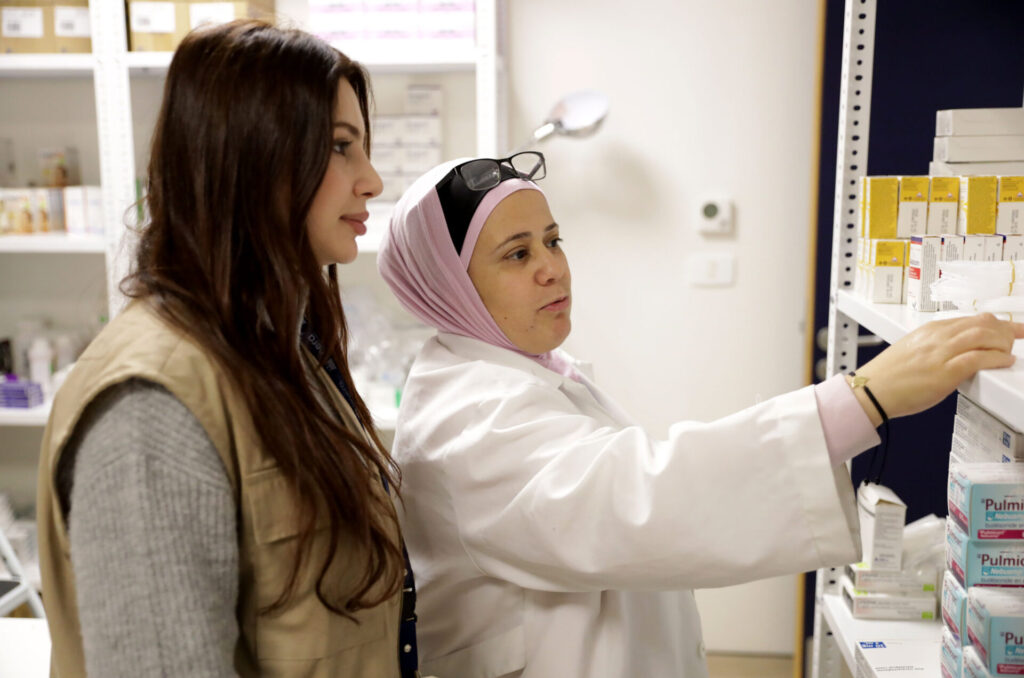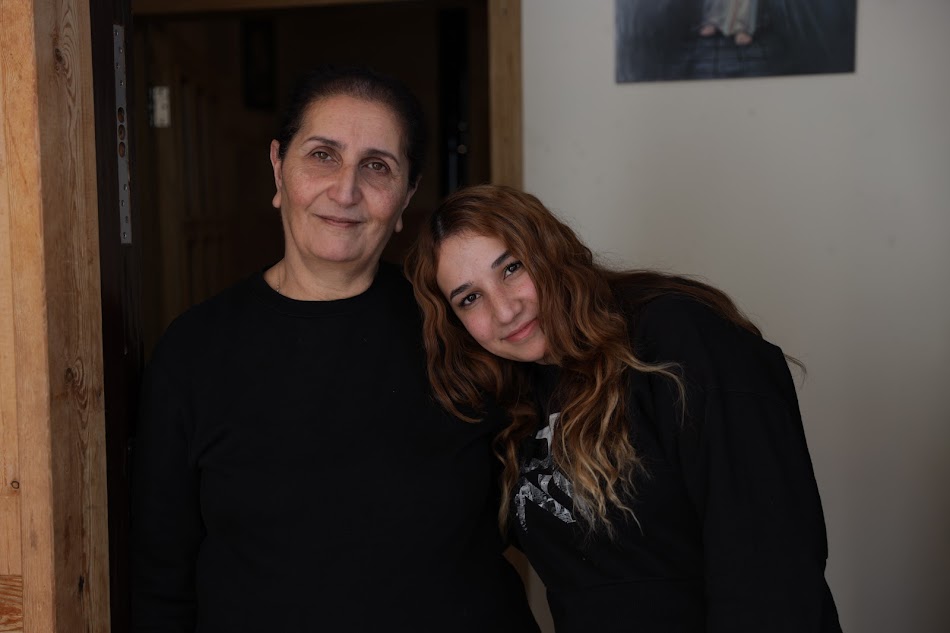Apr, 2013
Fathers, mothers, children, grandparents and relatives lined up quietly at the entrance of Beit Atfal Assumoud community center in the Palestinian refugee camp of Burj El Shemali, near Tyre in southern Lebanon.
They check their names on a paper register on the wall so they can receive vouchers to exchange for groceries, clothing, quilts, hygiene kits and baby kits. For many this is the first sign of help since they arrived in Lebanon after fleeing the conflict in Syria.
Anera is providing emergency relief aid with support from donors like you, the UN office for the Coordination of Humanitarian Affairs (OCHA) and in coordination with local partner organizations. Anera’s relief program includes health awareness on critical issues like proper nutrition during crisis, hygiene, water and sanitation.
Hiba Younes, a mother of four, says she and her husband have spent all their savings since arriving at Burj Al Shemali camp in December. She used the $138 worth of coupons to buy shirts and sandals for her children. “I bought diapers and oil, cheese, sugar, yogurt, eggs, rice, lentils, and milk with the grocery vouchers.”
Anera’s survey of refugee needs, which was published in March, shows food is the top priority but also the most costly. Two-thirds of those responding to the survey say they cannot provide three meals a day. Six out of ten families interviewed say they are living crammed more than 10 to one room. Many families have no electricity or running water.
More than 40,000 Palestinian refugees from Syria have fled to Lebanon, with some 3,000 refugees arriving each month. Nearly half have sought shelter in Palestinian refugee camps in southern Lebanon. As Palestinians, they are not eligible by UN mandate to receive UNHCR aid. UNRWA, which is responsible for aiding Palestinian refugees, is already overstretched to serve their increasing needs
A pale middle-aged man looking older than his 50 years, waited patiently with his younger hearing-impaired sister who is waiting to receive clothing and food coupons. “I came here last week and got one grocery and one clothing voucher for each member of my family, a total of ten vouchers,” he explained. The refugee, who gave his name as Ahmed, says he was able to exchange $322 worth of vouchers for enough food to feed his family of five for three to four weeks, along with some basic clothing.
He welcomes the aid and says he is grateful for the kindness of the center’s workers who treat the refugees with dignity and understanding.




